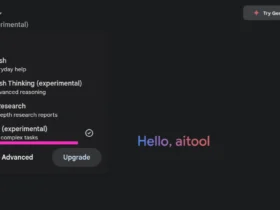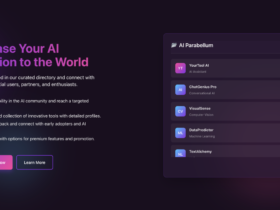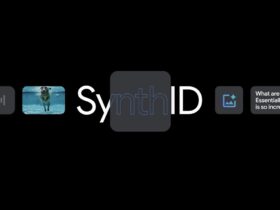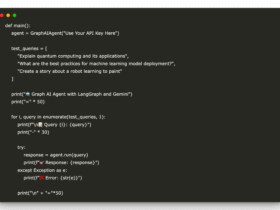Imagine a future where you don’t have to be tied to a desk or a clock. AI skills are opening new doors to freedom for professionals everywhere. By learning about AI chatbots and automation, digital nomads can replace boring tasks with smart tech. This frees up time for more important projects.
The old ways of working are changing fast. AI is already saving billions in fraud detection alone, showing its big impact. Companies are using AI to save money and work better, like cutting customer service costs by 30% with chatbots.
AI isn’t just for tech experts. It’s helping people in healthcare, education, and business too. Tools like Siri and Alexa can help with scheduling, data analysis, and even working with people in different time zones. As Naval Ravikant says, “Earn with your mind, not your time”—and AI makes this possible.
Learning about digital nomad AI can lead to flexible careers. Jobs in AI automation can save you money on commuting, lunch, and even taxes for working from home. With tools like JobCopilot, finding jobs is faster than ever. The need for these skills is growing, with more industries using AI.
Key Takeaways
- AI skills reduce manual work, letting you focus on high-value tasks.
- Digital nomad AI tools enable 24/7 business operations across global time zones.
- Companies save billions annually using AI, creating high-demand for skilled professionals.
- Learning AI boosts earning power through remote jobs and side gigs like online tutoring.
- Tools like JobCopilot and ResumeUp.AI make job hunting easier while respecting privacy, as outlined in AI Generator Reviews’ guidelines.
The Rise of AI-Powered Remote Work Opportunities
Traditional jobs are changing with AI. Now, companies look for people who use AI for remote work to automate tasks. For example, Agent GPT helps teams create chatbots. This shows that AI skills are key for working together from anywhere.
These changes mean jobs are valued based on skills, not where you are. This is a big shift.
How AI is Transforming Traditional Employment Models
Automation tools like digital nomad AI platforms are taking over simple tasks. Tools like ClickUp and Asana Intelligence predict when work gets slow. This lets teams focus on planning.
Employers want people who can use AI to make work easier. For example, Otter.ai writes down what’s said in meetings. Krisp.ai removes background noise. This shows AI is essential for working remotely.
Why AI Skills Are in High Demand Across Industries
Healthcare to finance, everyone needs AI skills. They want people who can analyze data and give personalized service. With 71% of people wanting tailored service, tools like HubSpot’s AI marketing tools help remote marketers stand out.
Employers want candidates who can solve problems with AI, not just code. This is a big change.
The Financial Benefits of AI Expertise for Remote Workers
- Remote AI specialists earn 30-50% more than traditional roles due to global talent shortages
- Tools like Jasper AI and Tableau let freelancers monetize skills across multiple clients
- AI systems like Agent GPT enable “set it and forget it” income streams through automation
These benefits show a new era where digital nomad AI skills mean more money. Companies pay more for those who get results with AI. This makes remote work both flexible and profitable.
Essential AI Skills for Digital Nomads
Learning the right AI skills is key for digital nomads to succeed in remote work. Let’s dive into the main skills needed for this new world:
Machine Learning Fundamentals Every Digital Nomad Should Know
Begin with the basics like supervised vs. unsupervised learning. Tools like scikit-learn and TensorFlow help you use predictive models easily. For example, analyzing sales trends or customer behavior can give you strategic insights—something employers value a lot.
Natural Language Processing for Location-Independent Work
“AI for remote work is changing how global teams work together,”
research shows. NLP skills help with tasks like analyzing customer feedback or automating content in different languages. Tools like OpenAI’s GPT and Google’s BERT make real-time language tasks easier. Learning to use tools like Hugging Face can improve communication and content localization across borders.
AI Automation Tools to Increase Your Remote Work Value
- Calendly’s AI schedules meetings without manual back-and-forth
- Clockwise optimizes team calendars across time zones
- Asana’s automation handles repetitive tasks like status updates
These tools make you more productive. Imagine automating tasks like data entry or report generation. This frees up time for more important work. AI for remote work can handle everything from chatbots to project management.
Data Analysis Skills That Pay the Bills
Data analysis is a mix of technical skills and business knowledge. Knowing predictive modeling (using Python/R) and visualization (Tableau/Power BI) is valuable. Companies are willing to pay more for those who can turn data into strategies. For example, using tools like Pandas or NumPy to spot market trends can greatly increase client value.
Even basic skills in these areas make you very valuable. Combine these with tools like Monday.com or Notion for smooth remote work. This is your path to success anywhere.
How to Build Your AI Expertise While Working Full-Time
Starting to build AI skills with a full-time job requires a plan. First, check where you stand in your current role. Look for gaps between your skills and what you want in digital nomad AI roles. Use platforms like Kaggle and GitHub for hands-on learning through real projects.
- Start with a skills gap analysis. Compare your current knowledge to entry-level requirements for remote AI roles.
- Replace theory-heavy courses with hands-on projects. Kaggle competitions or GitHub repositories showcase practical abilities employers value.
- Automate daily tasks using AI tools like Autopod or Clay AI to free time for skill development.
- Join Slack communities like Kaggle or GitHub for collaborative learning.

| Job Title | Annual Salary Range |
|---|---|
| AI Engineer | $115,000 |
| Machine Learning Engineer | $125,000 |
| Data Engineer | $100,000 |
| AI Consultant | $120,000–$200,000 |
| AI Artist | $60,000–$100,000 |
“Consistent, focused effort compounds over time—even just 5-10 hours weekly of deliberate practice will accumulate into substantial expertise within 6-12 months.”
Start with 2-3 hours a week to avoid burnout. Use tools like Trello or Notion to track your progress. Free resources like IBM’s Applied AI Professional Certificate or MIT’s business strategy course can help. Small steps lead to big changes in your journey to digital nomad AI opportunities. Your journey starts now!
Leveraging AI Skills to Land Your First Remote Position
Creating a strong AI skills portfolio is key to finding remote jobs. Start by picking 3-5 projects that use digital nomad AI to make a difference. For instance, show off an NLP chatbot you made or a machine learning model that made things 30% more efficient.
Link your code with blog posts that explain the problem you solved. This shows you’re both tech-savvy and understand business needs.
“AI for remote work isn’t about tools—it’s about solving problems employers can’t ignore.” – Remote Hiring Trends 2024
Here are some places to find jobs that need AI skills:
| Platform | Focus | Key Features |
|---|---|---|
| RemoteOK | Tech & AI roles | Curated listings with company reviews |
| AngelList | Startup opportunities | Direct access to equity-based remote AI roles |
| Toptal | High-tier AI consulting | Screened candidates for leadership roles |
When applying, show how your digital nomad AI skills are valuable. Talk about how you’ve saved time or boosted customer loyalty. Mention tools like Slack and Notion that help teams work together from anywhere.
Your AI for remote work portfolio is more than a resume. It shows you’re a skilled professional who can make a difference, no matter where you are.
- Update LinkedIn with keywords like “AI-driven solutions” and “remote workflow optimization”
- Join AI for remote work communities on Discord to network with recruiters
- Practice mock negotiations using AI tools like ChatGPT for role-play scenarios
Conclusion: Your Roadmap from Corporate Desk to Digital Nomad Freedom
Starting a journey with AI and remote work can lead to a life on the move. The growth of AI for remote work tools has made this path possible. From 2015 to 2020, the digital nomad community has exploded, with the pandemic speeding up this change.
Professionals like Sarah, who makes $7,500 a month with AI projects, show it’s financially viable. She’s a great example of how to succeed without a traditional job.
Knowing AI skills opens doors in tech and healthcare, thanks to companies like Twitter and Shopify embracing remote work. Tools like Yatter help improve your skills while keeping you productive. It’s important to have routines, steady income, and a budget to stay stable.
Sarah spends $3,000 a month on travel, health insurance, and more, showing it’s possible to live well without a 9-to-5 job.
The digital nomad life requires flexibility and a willingness to adapt. But the benefits—like flexibility, cultural experiences, and global connections—are worth it. Focus on digital nomad AI certifications and build a portfolio with real projects.
Use tools like password managers and encrypted networks to keep your work safe while traveling. Start by working remotely part-time and then go full-time.
Don’t let the corporate world define success anymore. Learn AI, stay curious, and let technology set you free. The path is clear—start with an online course or review your current projects. The world is your office, and the future of work is ready for you. Start today.












